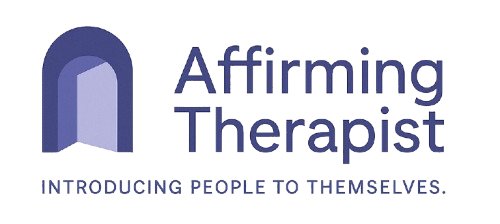What Is LGBTQ+ Affirming Therapy?
Image generated by AI with assistance from ChatGPT (OpenAI, 2025).
You’ve probably come across therapists or services that say they are “LGBTQ+ friendly.” It’s a comforting phrase, one that implies you’ll be treated with kindness and respect. But friendliness isn’t always enough. Even tolerance, often seen as a social virtue, can fall short in the therapy room.
LGBTQ+ affirming therapy goes further. It doesn’t just tolerate difference; it validates identity, honours complexity, and creates space for your full self to be heard — without censorship, without suspicion, and without subtle erasure.
Many LGBTQ+ individuals, especially in environments shaped by religious, cultural, or systemic norms, have experienced being “accepted” in name, but marginalised in practice. It’s the quiet pressure to explain yourself, the discomfort of not knowing if your therapist truly understands, or the coded suggestion that parts of you are best left unspoken. Tolerance, in these settings, can feel like being told: You may exist, but don’t expect to be truly seen.
In contrast, affirming therapy creates a relational field where identity isn’t a footnote. It is central, meaningful, and worth exploring — not because it needs fixing, but because it is part of how you make sense of the world, hold your pain, and move toward healing.
What You Can Expect in an Affirming Space
In affirming therapy, you don’t have to downplay your gender identity, explain your pronouns, or be met with silence when you speak about your partner. You won’t encounter blank stares when discussing the grief of being closeted, the exhaustion of code-switching, or the wounds of spiritual rejection.
Instead, you’re met with curiosity, respect, and a stance of ethical humility. Affirming therapy recognises the impact of marginalisation on mental health, understands the intersections of identity and trauma, and resists the temptation to retreat into neutrality when affirmation is what’s truly needed.
This does not mean that therapy becomes uncritical agreement. In fact, affirming therapists can challenge you more deeply — not because they doubt your truth, but because they care enough to walk with you into the heart of it.
Not Just Friendly, But Ethically Grounded
Being “friendly” is not the same as being affirming. Friendliness can mask discomfort. It can look like polite smiles and cautious language, without ever acknowledging the deeper emotional, cultural, or spiritual labour required to thrive in systems not built for you.
Affirmation, on the other hand, is grounded in an ethical commitment to presence. It calls for a willingness on the therapist’s part to unlearn bias, name power dynamics, and hold space without conditions. It invites transformation — not just for the client, but for the therapeutic relationship itself.
Why It Matters
When someone has spent years feeling merely tolerated, something profound happens when they are finally affirmed. The nervous system softens. Shame starts to loosen its grip. And the inner world begins to reorganize around the truth that I am not too much. I am not broken. I am not alone.
Therapy should never require you to fragment yourself just to be understood. It should be a space where your full story can emerge — held in confidence, and met with care.
In my practice, I support individuals navigating anxiety, trauma, identity, and relationship challenges through a trauma-informed, person-centered lens grounded in depth psychology. My approach is informed by the belief that healing happens not just through insight, but through relational safety — the kind that doesn’t just allow difference, but welcomes it.
When you’re ready to be seen — contact me.

